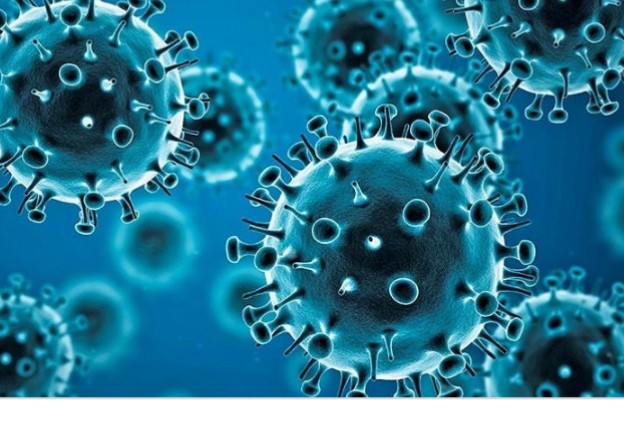|
Getting your Trinity Audio player ready…
|
By Joyce Mukucha
As the emergency of the new Omicron variant rattling countries around the globe with new cases surging in Southern Africa, and nations in the region trying to step up preparedness measures aimed at detecting and controlling its spread, it has been highlighted that lack of adequate vaccines was hindering Africa to reach the heard immunity.
According to the World Health Organisation (WHO), in Africa, vaccination rates remain low. Only 102 million people, or 7.5 percent of the population, is fully vaccinated and more than 80 percent of the population still needs to receive a first dose.
Speaking during a cross border media science cafe on the 7th of December 2021, Dr. Lul Riek, Southern Africa Coordinator for the Africa Centres for Disease Control and Prevention(CDC) said many African countries are forced to rely on donations.
Dr Riek highlighted that shipments were often poorly coordinated and to make matters worse, some shipments include doses that are close to the expiration date.
“The fight against Covid-19 is not yet over, we are not yet out of the woods.On the recorded cases, almost half were recorded in the African region. So far, 8,7 million people have been infected in Southern Africa. The African people need to be vaccinated so as as to achieve the herd immunity. If we do not reach herd immunity the circle of variants is likely to continue.
“The number one challenge which is affecting Africa is unequal distribution of life-saving vaccines. Continentally, only 6,7 percent of the African population is fully vaccinated as compared to 51 percent in Asia and 58,2 percent in Europe. When it comes to Africa, there is poor coordination, governments are not aware when exactly are the vaccines coming in which continue to cause unnecessary deaths. If we don’t vaccinate the target population, we will create an enabling environment for the virus. There is need to vaccinate at least 60/70 percent of our population to fight this pandemic,” said Dr Riek.
He pointed out that lack of vaccine production in Africa driven by social, political and economic factors was also hugely contributing to the failure by the continent to reach the herd immunity.
WHO has it that operational planning and funding challenges, vaccine delivery as well as communication and community engagement bottlenecks have hindered the efforts to widen vaccinations in some African countries.
Meanwhile, Mr Benbella Dektar, a CDC health professional with experience in health and disease elimination who supports community- based health interventions with focus in disease elimination and prevention said, “If we don’t reach herd immunity for COVID 19, then we risk having the virus spread further (morbidity) and death (mortality) as a result. This has devastating effects on the already-ailing African economies.”
Africa CDC representative Dr Talkmore Maruta said Africa CDC has been actively engaging countries in the region to start local manufacturing.
“Already, some of the vaccines being received now are manufactured locally for example from South Africa,” he said.
Dr Maruta highlighted that there are several channels avaliable to access vaccines through regional negotiations but the challenge has been the supply chains that have been under pressure to meet demands even where governments have their resources to purchase.
He further pointed out that there was more and more evidence pointing towards need to vaccinated children and guidance on this has been provided and a number of countries have started to vaccinate children.
“The current variant Omicron has been shown to affect children. Therefore, children (5-11 yrs) will receive specifically made paediatric vaccines.On research, we have ongoing studies since the pandemic started done in Africa and by Africans. Some of the latest changes have been informed by these clinical studies.”
It has been also emphasised that scientists need to work with communication experts to translate the scientific information into format and media eaily understood by the general public.
According to the World Health Organisation (WHO), in Africa, the Omicron variant has now been detected in four countries, with Ghana and Nigeria becoming the first West African countries and the latest on the continent to report the new variant.
So far, Botswana and South Africa have reported 19 and 172 Omicron variant cases, respectively. Globally, more than 20 countries have detected the variant to date. The two southern Africa countries account for 62% of cases reported globally.
WHO highlighted that Omicron has a high number of mutations (32) in its spike protein, and preliminary evidence suggests an increased risk of reinfection, when compared with other variants of concern.
It further indicated that researchers and scientists in South Africa and the region are intensifying their investigations to understand the transmissibility, severity and impact of the Omicron variant in relation to the available vaccines, diagnostics and treatment and whether it is driving the latest surge in COVID-19 infections.
Working with African governments to accelerate studies and bolster the response to the new variant, WHO is urging countries to sequence between 75 and 150 samples weekly.
“The detection and timely reporting of the new variant by Botswana and South Africa has bought the world time. We have a window of opportunity but must act quickly and ramp up detection and prevention measures. Countries must adjust their COVID-19 response and stop a surge in cases from sweeping across Africa and possibly overwhelming already-stretched health facilities,” said Dr Matshidiso Moeti, WHO Regional Director for Africa.
